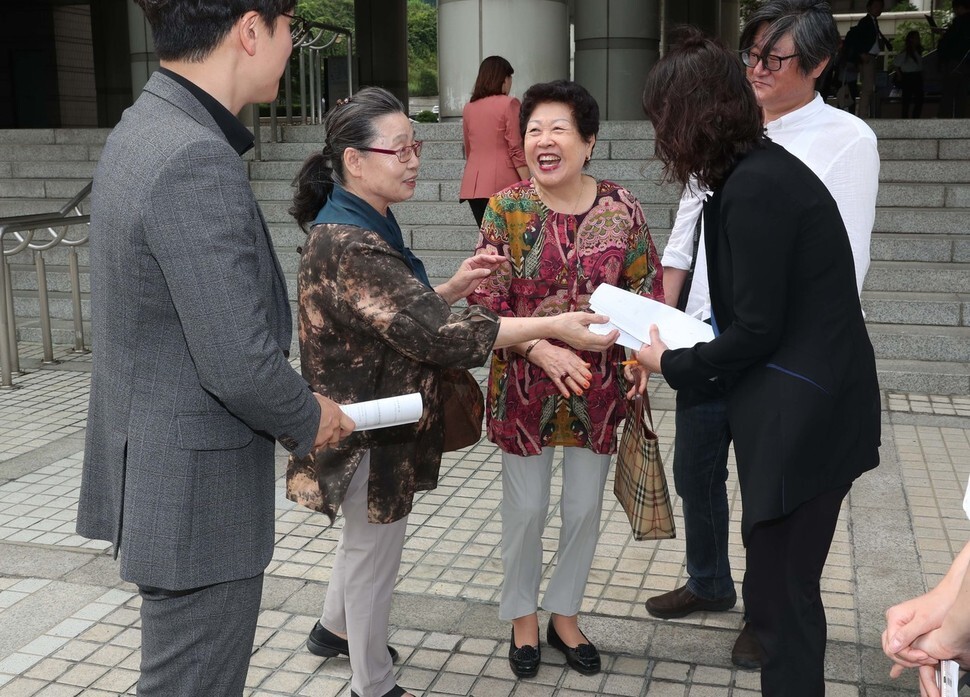
A South Korean court has ruled in favor of the victims of forced labor during Japan’s colonial occupation of Korea. This comes on the back of news that a separate South Korea-Japan summit will not occur during the G20 Osaka summit because of a South Korean Supreme Court ruling last October that Japanese imperial-era companies have the responsibility to provide reparations to forced labor victims. Similar to past rulings, this recent ruling came only after the victims themselves had passed away, so only their families were present at the sentencing hearing.
On June 26, the 13th division of the Seoul High Court (under the Hon. Kim Yong-bin) ordered Japan Iron and Steel Co., the forerunner of Nippon Steel and Sumitomo Metal Co., to provide compensation of 100 million won (US$86,400) to each plaintiff. This ruling was similar to an initial ruling in a suit brought by Kwak Hae-gyung and six others who were conscripted to work for Nippon Steel. The plaintiffs were forced to work at the Kamaishi and Yamata steelworks in Japan from 1942 to 1945. They had to work over 12 hours per day melting metal in blast furnaces.
After the ruling, the lawyers representing the victims called for the Japanese company to change its stance on compensation to the forced labor victims, saying, “The suit places responsibility [for forced labor mobilization] at the feet of this Japanese company. The company must discontinue waiting for a bilateral agreement while hiding behind the Japanese government. It must now come out and discuss how to put this ruling into practice.” The lawyers added, “Efforts from both countries [Japan and South Korea] are needed to ensure Japan reflects and apologizes [for its crimes].” At a shareholders meeting held the day before in Japan, Nippon Steel simply reiterated its former stance by saying, “The ruling by the South Korean Supreme Court is unfortunate. Our company will respond appropriately on the basis of diplomatic negotiations by the South Korean and Japanese government.”
This recent ruling came three years and seven months after the case had been brought to the Seoul High Court in December 2015. The trial had been delayed due to discussions held by former President Park Geun-hye’s Blue House and former Supreme Court Chief Justice Yang Seung-tae on overturning the Supreme Court decision to provide compensation to forced labor victims. In February, the last remaining survivor, Lee Sang-ju, died. “The appeals trial was delayed because of an abuse of power in the legal system at that time. They should be held responsible for delaying the compensation to victims who suffered during their youth,” said Im Jae-song, one of the lawyers representing the plaintiffs.
By Jang Ye-ji, staff reporter
Please direct comments or questions to [english@hani.co.kr]